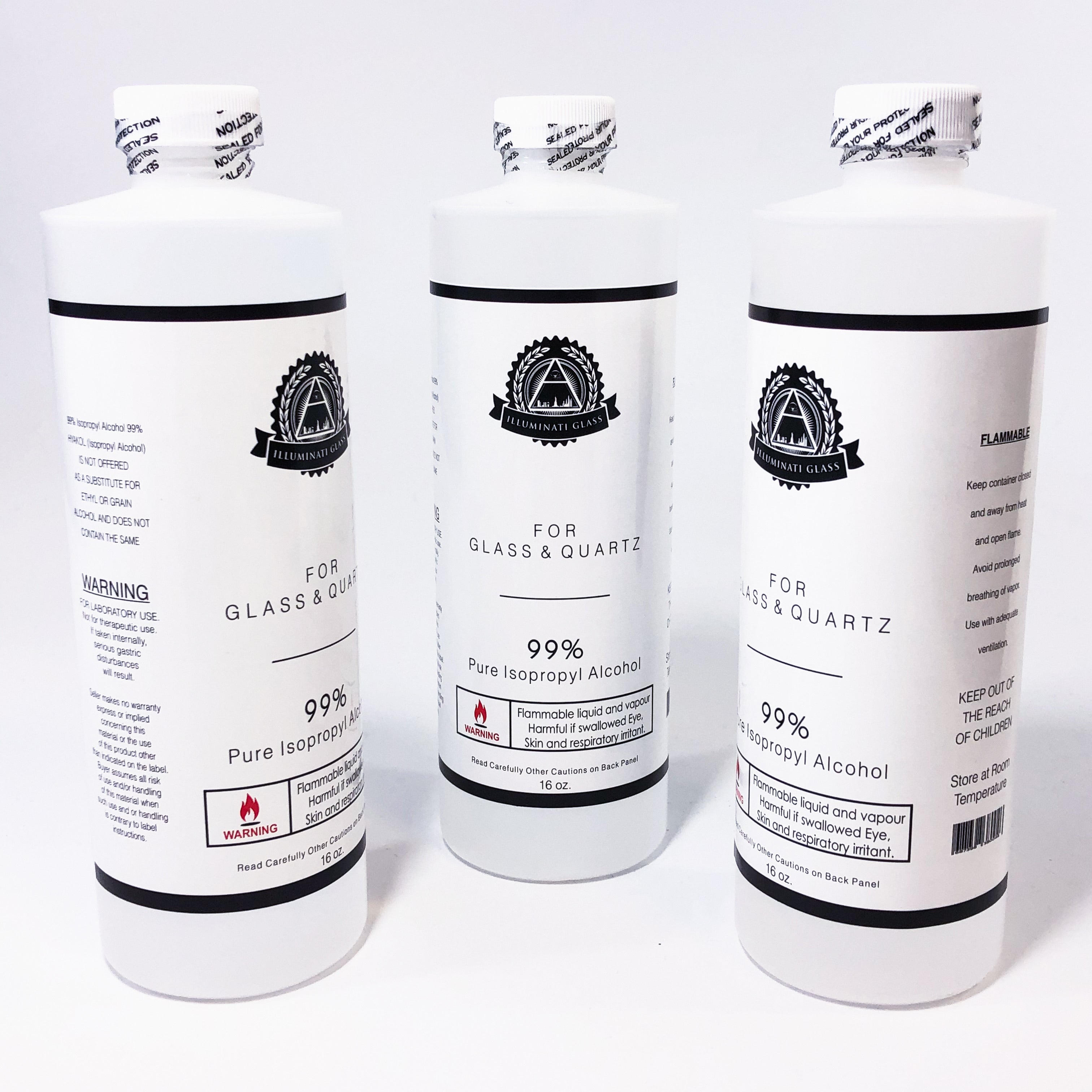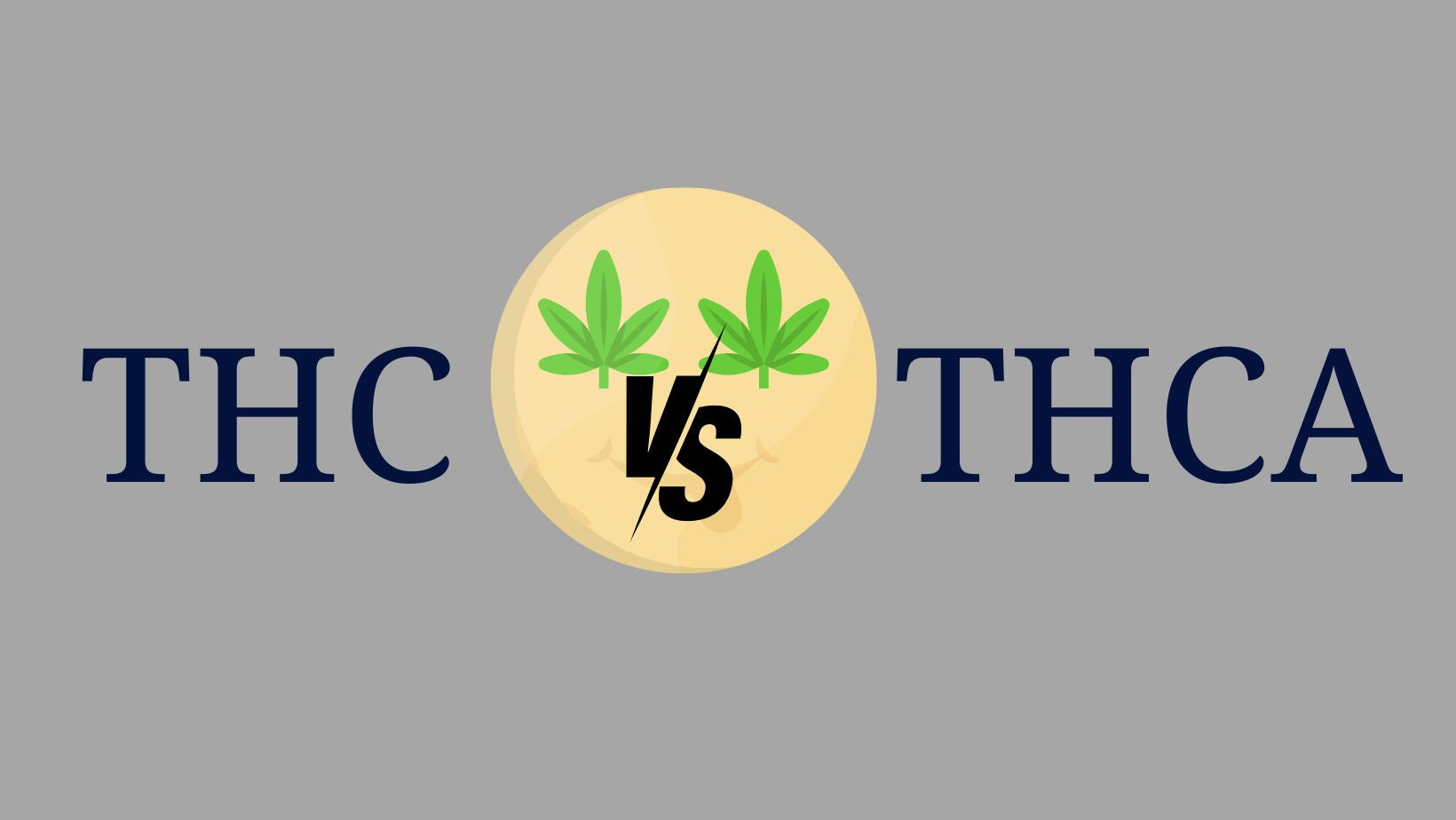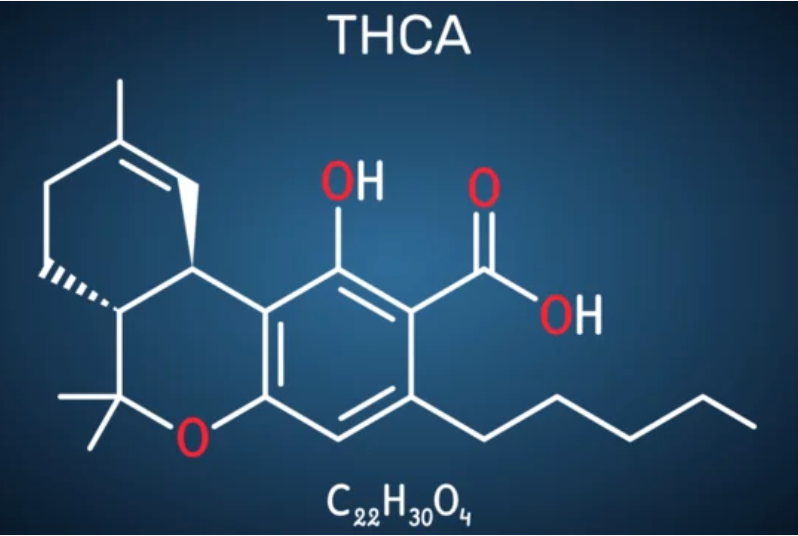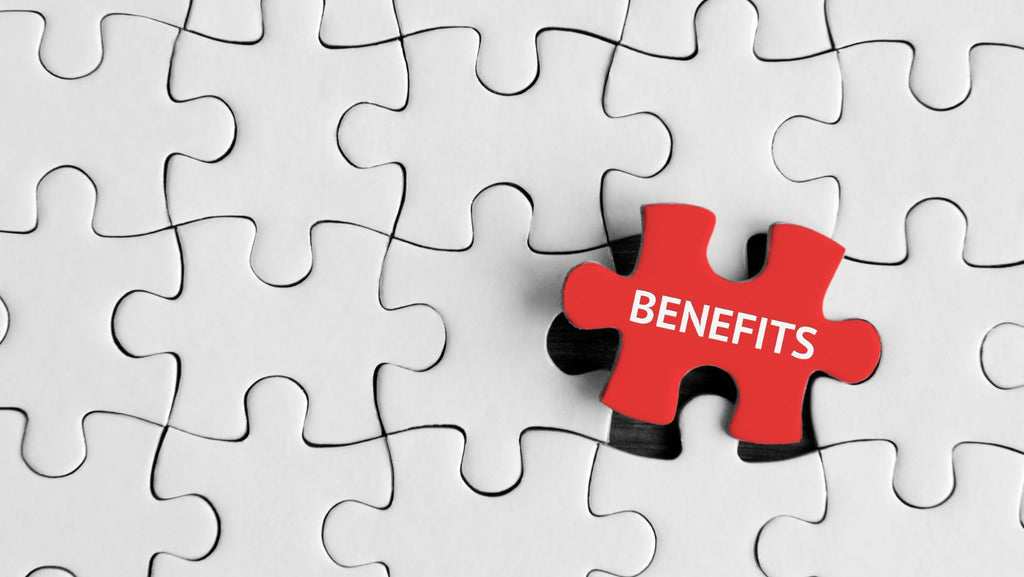Product Offers
Share your best offers
99% Isopropyl Alcohol - Glass & Quartz Cleaner
- Price
- $12

THC vs THCA: What Is The Difference?
Explore the key differences between THC and THCA, their effects, legal status, and health benefits in our detailed guide.
Cannabis products can affect people differently, and a major factor in this is THCA, a compound that doesn't produce the high associated with THC. This article will explore the distinctions between THC and THCA and what they mean for consumers. Read on to gain a deeper understanding of these compounds.
Understanding THC vs THCA
Tetrahydrocannabinol (THC) and Tetrahydrocannabinolic acid (THCA) are both cannabinoids found in the cannabis plant, but they affect the human body in fundamentally different ways. THC is well-known for its psychoactive effects—it's the compound that gets users "high."
On the other hand, THCA is a non-psychoactive precursor to THC, found in raw and unprocessed cannabis. When cannabis is heated, through smoking, vaping, or cooking, THCA is converted to THC, altering its chemical structure and its effects on the body.
Understanding the differences between these two compounds is crucial for both consumers and medical patients. It influences everything from the legal status of cannabis products to their effects on the body.
For recreational users, the presence of THC is typically sought after for its psychoactive properties. Meanwhile, medical users might seek products high in THCA for its potential therapeutic benefits without the psychoactive effects.
What is THCA?
THCA stands for tetrahydrocannabinolic acid, and it is found in abundance in fresh cannabis plants. Unlike THC, THCA is non-psychoactive, which means it doesn't produce the high associated with THC.

However, when cannabis is heated through processes like drying or combustion, THCA undergoes decarboxylation to become THC. This transformation allows THCA to affect the endocannabinoid system, though its original form also holds its own range of benefits.
In its raw form, THCA has been studied for its potential anti-inflammatory, neuroprotective, and anti-proliferative qualities. This makes it particularly interesting for medical research.
Cannabis users who juice raw cannabis or consume it fresh are primarily ingesting THCA, not THC. This form of consumption can be particularly beneficial for those looking for the medical benefits of cannabinoids without the psychoactive effects.
What is THC?
THC, or delta-9-tetrahydrocannabinol, is the primary psychoactive component of the cannabis plant. It works by binding to cannabinoid receptors in the brain, leading to the euphoria and relaxation commonly associated with marijuana use. The intensity and duration of its effects can depend on the method of consumption, the individual's biology, and the strain of cannabis used.
Beyond its recreational use, THC has significant medical applications. It has been found effective in treating symptoms like pain, nausea, and lack of appetite. It's also used to alleviate conditions such as chronic pain, insomnia, and glaucoma.
However, the psychoactive effects of THC can also lead to side effects like anxiety and short-term memory impairment, which are important considerations for new users.
THC vs THCA: Key Differences
While both THC and THCA are cannabinoids derived from the cannabis plant, they exhibit significant differences that impact their use, legal status, effects on the body, and chemical properties. These differences are crucial for both recreational users and medical patients to understand, as they influence the choice of cannabis products for specific needs and effects.

Psychoactivity
THC, or Tetrahydrocannabinol, is the primary psychoactive compound in cannabis, known for producing the "high" effect. It achieves this by binding to CB1 receptors in the brain, which results in the alteration of mood, perception, and overall cognitive functions. This psychoactivity makes THC the focus of recreational cannabis use and also a valuable component in therapeutic settings, where its euphoric effects can be beneficial.
On the other hand, THCA, or Tetrahydrocannabinolic acid, does not produce psychoactive effects because it does not fit into the same neural receptors as THC. THCA is found in raw and unprocessed cannabis and needs to be decarboxylated—converted through the application of heat—into THC to become psychoactive. This property is particularly important for users who seek the medical benefits of cannabis without the accompanying high.
Chemical Properties
From a chemical standpoint, THCA is the acidic precursor to THC. It has a carboxyl group (-COOH) attached to its molecule, making it non-psychoactive and structurally unable to activate CB1 receptors in the brain.
The removal of this carboxyl group through decarboxylation significantly changes the molecule, allowing THC to interact with the endocannabinoid system and produce psychoactive effects.
Legal Status
Legally, the distinction between THC and THCA is significant due to their psychoactive properties. In many parts of the world, THC is a controlled substance because of its psychoactive effects, which affects the legal status of cannabis products that contain it.
THCA, being non-psychoactive, is often subject to different, less stringent regulations, allowing for its use in certain medical and scientific applications even in places where THC is restricted or illegal.
Medical Applications
Medically, THC is valued for its effectiveness in relieving pain, stimulating appetite, and reducing nausea, making it useful in treating conditions like chronic pain, cancer, AIDS, and more. Its psychoactive effects, however, can also produce undesirable side effects like anxiety or impaired cognitive function, which can limit its use in some patients.
THCA, while non-psychoactive, has shown promise in studies for its anti-inflammatory, neuroprotective, and anti-proliferative properties, suggesting potential roles in treating conditions like arthritis, neurodegenerative diseases, and even some forms of cancer.
These benefits can be obtained without the psychoactive effects associated with THC, offering an appealing option for patients and healthcare providers looking for treatment alternatives.
Comparison Table: What is THCA vs THC?
Here is a comparison table summarizing the key differences between THC and THCA:
| Feature | THC | THCA |
| Psychoactivity | Psychoactive (produces a high) | Non-psychoactive |
| Chemical Structure | Contains no carboxyl group | Contains a carboxyl group (-COOH) |
| Legal Status | Regulated or illegal in many places | Less stringent regulations |
| Medical Uses | Pain relief, appetite stimulation, nausea reduction | Anti-inflammatory, neuroprotective, anti-proliferative |
| Effect on Brain | Binds to CB1 receptors | Does not bind to CB1 receptors |
Potential Benefits: THCA vs THC
Both THCA and THC offer a range of potential health benefits, though their effects and applications differ significantly due to THC's psychoactive properties and THCA's non-psychoactive status. Here are some of the notable benefits associated with each:

THC:
- Pain relief: Effective in managing chronic pain and inflammatory pain.
- Appetite stimulation: Known to increase appetite, which can be beneficial for people undergoing chemotherapy or those with AIDS.
- Nausea reduction: Helps reduce nausea and vomiting, particularly in cancer treatment settings.
- Sleep aid: Can aid in sleep for people suffering from insomnia or disrupted sleep patterns.
- Anxiety relief: In moderate doses, it can reduce anxiety (though higher doses may increase anxiety).
- Glaucoma treatment: May help reduce intraocular pressure, although more research is needed for long-term effects.
- Muscle spasm control: Used to alleviate symptoms of multiple sclerosis and other neurological conditions.
THCA:
- Anti-inflammatory: Useful for treating arthritis and lupus.
- Neuroprotective: Potential applications in treating neurodegenerative diseases.
- Anti-proliferative: Shown to inhibit the growth of cancer cells in preliminary studies.
- Anti-emetic: Can reduce nausea and vomiting without psychoactive effects.
- Non-psychoactive: Offers medical benefits without the high, suitable for patients who need to maintain a clear head.
- Potential to treat metabolic syndrome: Early research suggests it may help with obesity-related diseases.
- Enhanced accessibility: Can be used where THC is illegal or restricted.
Types of THCA Products
THCA products are available in a variety of forms, each offering unique experiences and benefits for cannabis users:
- THCA Vape: THCA vapes offer a discreet and convenient way to enjoy THCA's potential therapeutic effects. They allow for rapid absorption and fast effects, with the THCA converting into THC when vaporized.
- THCA Cartridges: These cartridges are filled with concentrated THCA oil and are used with vape pens. They provide a discreet method to consume THCA, which then transforms into THC upon heating.
- THCA Flower: THCA Flowers are the unheated buds of the cannabis plant, high in THCA and not yet converted into THC. This form allows users to enjoy the potential health benefits without the psychoactive effects. THCA flowers can be incorporated into pre-rolls or made into tinctures.
- THCA Rosin: This potent extract is produced by applying heat and pressure to raw cannabis flowers, creating a concentrated, solvent-free product. It is appreciated for its purity and extraction method.
- THCA Pre-Rolls: These pre-rolled joints are filled with THCA-rich cannabis flower. They are favored for their potential health benefits and non-psychoactive nature.
- THCA Wax: A concentrate made from raw cannabis that is high in THCA, offering potential therapeutic benefits. It can be used in various consumption methods such as dabbing or vaporizing.
- THCA Gummies: These edible products are infused with THCA, providing a discreet and convenient method to consume THCA with potential health benefits, without experiencing intoxication.
- THCA Concentrates: These are potent forms of THCA used in oils, tinctures, and dabs, providing an effective way to access THCA's therapeutic properties.
- Bulk and Wholesale THCA: This option caters to those with high-volume needs, offering various THCA products including raw flowers and concentrates, suitable for a range of consumption preferences and requirements.
How Long Does THCA Stay in Your System?
The duration that THCA remains detectable in your system can vary based on several factors including the amount consumed, frequency of use, and individual metabolism.
Unlike THC, which is the psychoactive compound in cannabis known for its clear intoxicating effects, THCA is non-psychoactive and doesn't produce a high. However, understanding how long it stays in your system is important, particularly in the context of drug testing.
Factors Influencing THCA Detection
- Metabolism: Faster metabolisms will break down and eliminate THCA from the body more quickly than slower ones.
- Body Fat: THCA, like THC, is fat-soluble, which means it can be stored in fat cells and may remain in the body for longer periods in individuals with higher body fat percentages.
- Usage Frequency: Regular users will have higher levels of THCA build up in their system over time, which can lead to longer detection times compared to occasional users.
- Amount Consumed: Larger doses of THCA can increase the duration it remains detectable in the body.
Detection Times
THCA is typically measured in drug tests that specifically look for cannabis use, as it is a precursor to THC. While most standard drug tests focus on detecting THC itself (and its metabolites), certain tests may also detect THCA, especially if they are analyzing recent consumption of unheated cannabis products.

However, because THCA converts to THC upon heating, it's often THC that is more relevant in drug testing scenarios.
- Urine Tests: THCA can potentially be detected in urine for a few days to weeks after use, depending on the sensitivity of the test and the factors listed above.
- Blood Tests: THCA may be detectable in the blood for a few hours to a couple of days.
- Saliva Tests: Like THC, THCA can be present in saliva for anywhere from a few hours to a couple of days after use.
- Hair Tests: Hair testing can show drug use over a longer duration, capturing data for up to 90 days. However, this test primarily measures THC and may not be as reliable for determining the presence of THCA specifically.
It's important to note that the precise detection windows can vary widely based on the individual and the specific test used.
For the most accurate information regarding drug testing and detection times related to personal circumstances, consulting with a medical professional or a drug testing expert is advised.
The Conversion Process: How THCA Becomes THC
The conversion of THCA to THC, known as decarboxylation, is a chemical reaction that involves the removal of a carboxyl group from the THCA molecule. This process is triggered primarily by heat, making it a central aspect of how cannabis is prepared for consumption.
Decarboxylation typically occurs when cannabis is:
- Smoked or vaporized, where the heat from burning or vaporizing cannabis quickly converts THCA into THC, making the THC readily available for absorption through the lungs.
- Cooked in edibles, where cannabis is heated during the cooking process. To effectively convert THCA into THC in edibles, cannabis is often decarboxylated before it is combined with cooking fats like oil or butter, which helps to dissolve the THC and aids in its absorption when ingested.
- Cured and dried, although this process is much slower and less complete compared to active heating. Some decarboxylation occurs naturally as the cannabis plant dries and cures after harvesting.
This conversion is crucial for users seeking the psychoactive effects of THC, as raw cannabis contains very little THC but is rich in THCA.
The Bottom Line
Understanding the differences between THC and THCA is crucial for anyone looking to engage with cannabis, whether for recreational or medicinal purposes. THC, known for its psychoactive effects, is the compound most associated with the "high" experienced from cannabis. In contrast, THCA is a non-psychoactive precursor that turns into THC when heated, offering potential therapeutic benefits without intoxication.
Recognizing how each compound works, their legal implications, and their effects on the body can help consumers make informed decisions that align with their health needs and personal preferences. As the cannabis industry evolves, so does our understanding of these compounds, underscoring the importance of staying informed about how these cannabinoids interact with our bodies.
FAQs: THC vs THCA
Can THCA show up on a drug test?
THCA can show up on highly sensitive drug tests, especially if the test is designed to detect recent consumption of raw cannabis products.
Does THCA help with pain like THC does?
While THCA has shown anti-inflammatory properties, its efficacy in pain management has not been studied as extensively as THC. However, it may offer benefits without the psychoactive effects.
Is it legal to buy THCA everywhere THC is illegal?
The legality of THCA is more ambiguous and varies by jurisdiction. In some places, because it is non-psychoactive, it may not be regulated as strictly as THC.
How can I convert THCA into THC at home?
The most common method is by heating it, such as by baking cannabis in an oven at a controlled temperature to promote decarboxylation.
What is the best temperature for decarboxylating THCA into THC?
Generally, around 220-245°F (105-120°C) for about 30-40 minutes is effective, though it can vary based on oven accuracy and moisture content of the cannabis.
Can consuming THCA affect mental health?
As THCA is non-psychoactive, it does not have the same potential for affecting mental health as THC, which can exacerbate or contribute to conditions like anxiety or paranoia in some users.
What is the most effective way to consume THCA for health benefits?
Consuming raw cannabis, such as through juices or smoothies, ensures that the THCA is not converted to THC and retains its properties.
Can I take THCA daily?
As with any supplement or medication, it's important to consult with a healthcare provider. However, given its non-psychoactive nature, THCA may be suitable for daily use under medical guidance.
Does THCA interact with other medications?
The interaction of THCA with other medications has not been thoroughly researched. Users should consult healthcare professionals to ensure safety, especially if taking other treatments.












